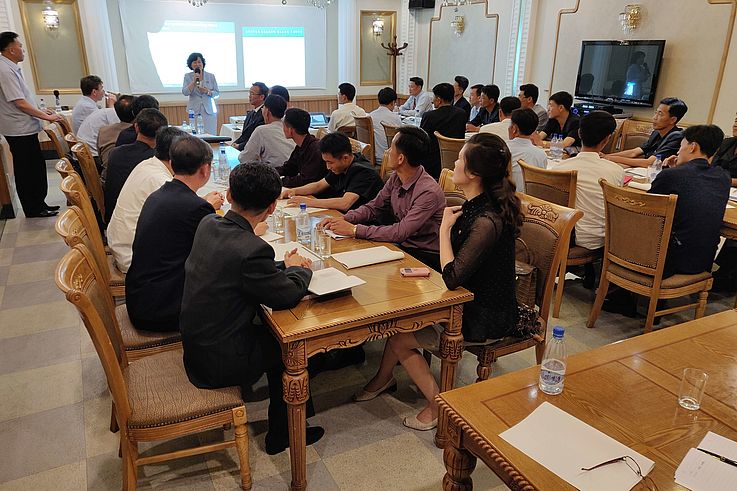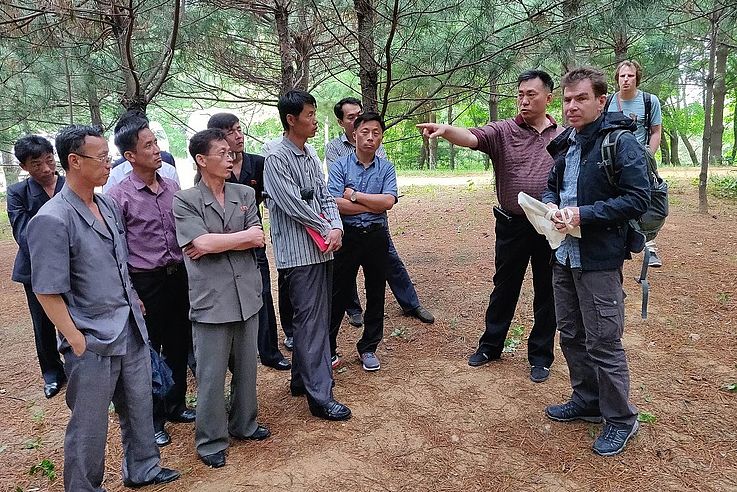Seminar
Lack of Data about Forests and Amphibia - Closing Gaps in North Korea
A seminar on “Options for a National Forest Inventory in DPR Korea – based on experiences from Germany and other countries” was held the second time when Dr. Heino Polley, vice-head of the Thünen Institute for Forest Ecology visited North Korea to share his experiences and expertise about the German Forest Inventory. After an introductory seminar in November 2018, the audience of around 45 North Korea forest experts listened to detailed explanations about topics such as the German forest policy as well as the organization, methodology, and management of a National Forest Inventory in North Korea. Each session of the two-day seminar consisted of a short presentation by the expert and discussions among the North Korean experts on how to transfer the topic to North Korean conditions. Presentations by North Korean foresters introduced the findings and also current needs for a NFI in North Korea.
The second seminar that was simultaneously held brought together North Korean experts on Amphibia with Dr. Amael Borzée, a member of the IUCN Amphibian Specialist Group. He introduced basics, such as the importance of amphibians in the ecosystem, threats and, the current amphibian crisis, but also specific topics, such as the description and information on the threat status of amphibian species from North Korea. Apart from the introduction and discussions, another objective was the elaboration of potential fields for cooperation. HSF is supporting this exchange and is confident that the workshop has laid a foundation for further cooperation on frogs, salamanders, and co.
Field visits to the Central Tree Nursery and the Model Reforestation Site followed the next day. At the former project sites of the Eu-funded project on Sustainable Reforestation, Dr. Polley introduced practical features of a modern National Forest Inventory. At the project sites in Mundok and Onchon, which are significant wetlands in the project of HSF on the Wise Use of Wetlands in North Korea, Dr. Amael Borzee conducted joint research with local experts on frog species, such as the Suweon frog and the Golden spotted frog. Finally, the group paid a visit to the tree nurseries in Onchon and Mundok. Mundok District Tree Nursery was newly refurbished only a year ago as part of the National Reforestation Campaign and has a Forest Fire Prevention Center for the district.


